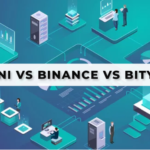Key Takeaways:
- The IRS would refund $3,293 in income tax (plus statutory interest) to a Nashville couple who had paid the amount on 8,876 Tezos tokens obtained through staking.
- According to the civil lawsuit filed by Joshua and Jessica Jerrett, they requested a refund of $3,293 in income tax paid in 2019 in exchange for receiving 8,876 Tezos tokens.
- In addition, to compensate for lost income, the couple requested a $500 increase in tax credits.
- Jarretts’ counsel rejected the IRS’s offer of a tax refund on Jan. 25, claiming that the IRS had provided no assurance that they would not be taxed again.
Individuals who want to earn new tokens by providing security to large blockchains that use proof-of-stake might be lucky soon. The IRS may not tax your unstaked cryptocurrency. For example, the IRS would refund $3,293 in income tax (plus statutory interest) to a Nashville couple who had paid the amount on 8,876 Tezos tokens obtained through staking.
According to a civil lawsuit filed by the couple, Joshua and Jessica Jarrett, on May 26, 2021, any tokens obtained through proof-of-stake should be considered “new property” created by the taxpayer and thus not income that “comes in” to the taxpayer. Tokens obtained through staking (or any other newly created property) must first be converted into a “readily accessible form of wealth” to be taxed. Thus, the lawsuit claims that no taxable event has occurred until the tokens are sold.
According to the civil lawsuit filed with the U.S. District Court for the Middle District of Tennessee, Joshua and Jessica Jerrett requested a refund of $3,293 in income tax paid in 2019 in exchange for receiving 8,876 Tezos tokens. In addition, to compensate for lost income, the couple requested a $500 increase in tax credits.
According to sources familiar with the situation, Joshua and Jessica Jarrett received a letter from the Department of Justice on December 20 stating that the Internal Revenue Service (IRS) had approved a full refund of their 2019 taxes against the tokens they earned by staking in the Tezos network, plus statutory interest.
The decision establishes a significant precedent in the context of a broader policy debate over how to define and tax crypto assets. In addition, the 2021 version of IRS form 1040 prominently features a line item asking if filers at any time during the year “received, sold, exchanged, or otherwise disposed of any financial interest in any virtual currency”, indicating to many the IRS intends to make crypto a central point of focus moving forward.
However, there is still some uncertainty, as IRS instructions issued as recently as December 21 defined a “virtual currency transaction” as one that included “the receipt of new virtual currency as a result of mining and staking activities”, directly contradicting the decision at hand. In Notice 2014-21, the IRS said, “A taxpayer who receives virtual currency as payment for goods or services must, in computing gross income, include the fair market value of the virtual currency measured in U.S. dollars, as of the date that the virtual currency was received.”
With the start of the tax filing season for 2021 just a few weeks ago, the news has already made quite a stir in the crypto community. While it is unclear whether the IRS intends to update its official guidance for last year, sources close to the case say the couple intends to pursue the case further in court to obtain longer-term protection. This would undoubtedly set a national precedent for the fast growth taking industry, currently valued at around $18 billion.
Despite their initial success, the Jarretts’ counsel rejected the IRS’s offer of a tax refund on January 25, claiming that the IRS had not assured that they would not be taxed again. In other words, the Jarretts won the first round of their lawsuit, which was filed in Tennessee Middle District Court in May 2021, but the victory only applied to their 2019 taxes. They intend to file a lawsuit to obtain long-term protection. This could set a precedent for anyone interested in profiting from cryptocurrency staking. In addition, the decision could have far-reaching implications for the taxation of proof-of-stake miners and stakers in the future.









